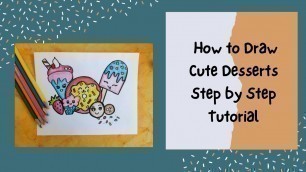

'Experiencing food coma is more common than you may expect. Many cultures are known for celebrating big meals or challenges such as “all-you-can-eat”. Because of this, fatigue after eating is frequent in modern society; however what you may not realize is that this fatigue is a signal that something is damaging the health of your body. According to extensive research, food coma and inflammation are strongly correlated, and the bad news is that these same studies point to inflammation as being the root of disease. When I speak of inflammation, I’m not referring to the body’s response to an injury or wound, but rather a chronically inflamed state. For example, with food coma, when you eat something which is not natural (i.e. candy), your body becomes alerted. In the same way, high-stress associated with the pressures of modern life means that many of you are chronically inflamed and that the seeds of the disease have already spread roots (thus feeling fatigue after eating). It may sound scary –and that’s not my goal- but your body creates thousands of cancerous cells on a daily basis. The good news is that the human body is a complex mechanism, and from a biological perspective, you have been designed with the ability to fight off disease (i.e. inflammation related to fatigue after eating and food coma). In other words, your body will able to protect itself, provided that it’s healthy and strong enough. Going back to food coma, you may be aware that food is a huge contributor to low-grade inflammation. The scientific word for this is postprandial inflammatory response. Because your intestine is responsible for being a guard, or otherwise a barrier separating the external environment from your internal system, when we eat something the body considers foreign or unnatural, it will investigate. This means that if your body doesn’t recognize something, then the inflammatory system is activated even more. And that’s because the immune system thinks that the food you’ve ingested is an invader. In addition, because the immune system requires a lot of energy, you feel fatigue after eating. This is what food coma actually is; food coma is inflammation, and it’s not a good sign because it indicates an issue with either your meal or digestive functioning. Now for the good news: while food coma, digestive issues, or fatigue after eating are common in our modern society, there are certain interventions which could help with postprandial inflammation. However, it\'s important to remember that health is not dependent on any one single behavior, but is rather an accumulation of good behaviors. Considered one of the most powerful antibiotics our bodies use, a protein called Lactoferrin is a universal intervention for the disease. It has the capacity to diminish the inflammatory response of the body, and most importantly, can combat chronic illnesses including food comas or the inflammation associated with fatigue after eating. If you’re wondering how to achieve this, here are 3 incredibly effective interventions: 1. Breast milk. Lactoferrin is found in abundance in human breast milk. You may already be aware of the importance of breast milk for your baby’s body. Breast milk is great against a food coma as it negates the inflammatory response, and is important for babies as their immune system is not fully developed. However, this first option is more educational, as breast milk is not exactly available in supermarkets. 2. Supplementation. Lactoferrin can be found in this form, and I will link my personal recommendation down below. Be advised though, if you’re suffering from lactose intolerance, this is a bovine supplement derived from milk and therefore may not be suitable for individuals experiencing extreme reactions to milk products. 3. Upper body exercise. The most economical and healthiest way is through exercise. From an evolutionary point of view, our ancestors physically worked for their meals (i.e. catching fish), and that signaled that it was meal time, and so the body produced Lactoferrin in response. Nowadays, as little as 10 minutes will produce enough lactoferrin to negate immune over-activation to help against a food coma and fight fatigue after eating! As promised, here is the Lactoferrin supplement I strongly recommend: Best Lactoferrin (USA & Canada): http://amzn.to/2vfqBjD Best Lactoferrin (UK & Europe): http://amzn.to/2ulmeVg Health begins in the gut, Anita Tee MSc Personalized Nutrition, BSc Human Biology To get healthier with a scientist on your side, keep up with me on: Twitter: https://twitter.com/factvsfitness Facebook: https://www.facebook.com/factvsfitness/ Instagram: https://www.instagram.com/factvsfitness/ My website: http://factvsfitness.com'
Tags: eating , nutrition , full , Inflammation , gut health , ibs , constipation , diarrhea , food coma , dr axe , too much food , irritable bowel syndrome , tired after eating , inflammatory bowel disease , sleepy after eating , fatigue after eating , feeling sleepy after eating , feeling tired after eating , lipemia , IBD , extreme fatigue after eating , why do i get sleepy after eating , falling asleep ater eating , sleepiness after eating , postprandial inflammation , why do i get food comas , crohns , shimbleflog
See also:

















comments